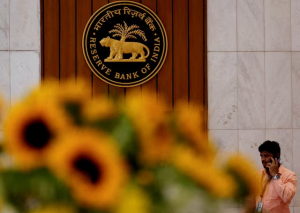Taiwan's central bank governor warned on Saturday that rapidly rising U.S. debt could be "unfavourable" to the outlook for U.S. Treasuries and that U.S. President Donald Trump's trade policies have made investors cautious. Taiwan's $593 billion in foreign exchange reserves are more than 80% made up of U.S. Treasury bonds, according to the central bank, which said earlier this month that Treasuries were "sound" and still favoured by investors. It added there were no worries about the dollar's position as the leading international reserve currency. The Reuters Daily Briefing newsletter provides all the news you need to start your day. Sign up here. Advertisement · Scroll to continue
Sponsored by LMD Discover Mindset, Egypt’s first work wellness concept, in collaboration with LA7, bringing 30... Discover Mindset, Egypt’s first work wellness concept, in collaboration with LA7, bringing 30 acres of office spaces designed to foster a healthier work-life balance in the heart of New Zayed. Launching now #LMD #WestBeing #MindSet #LA7 Tax Registration: 332-990-516 Learn more Report This Ad Governor Yang Chin-long, in a speech posted on the central bank's website, said Trump's repeated criticisms of the U.S. Federal Reserve's monetary policy have caused concerns about its independence. "In addition, Trump 2.0's trade policy has made investors hesitant about holding U.S. Treasury bonds; Trump's budget, the 'One Big Beautiful Bill Act,' may cause U.S. debt to expand too quickly, which is unfavourable to the outlook for U.S. sovereign debt," he said. "All of these have had a significant impact on the international monetary system centred on the U.S. dollar and based on U.S. creditworthiness." Advertisement · Scroll to continue
Report This Ad Trump's sweeping tax-cut and spending bill is the centerpiece of his domestic agenda. The bill would lead to a larger-than-expected $2.8 trillion increase in the federal deficit over the decade, despite a boost to U.S. economic output, the nonpartisan Congressional Budget Office projected on Tuesday. Trump, in his first few weeks in office, also announced sweeping tariffs on a broad swathe of countries and trading partners, including Taiwan, only to pause them for 90 days in April to allow for talks to take place. Yang said Trump had been hoping the tariffs could resolve the U.S. trade deficit. "However, the tariff policy not only fails to solve the structural problems, it will also impact the U.S. economy, and threaten to further affect the outlook for global trade and the economy."













